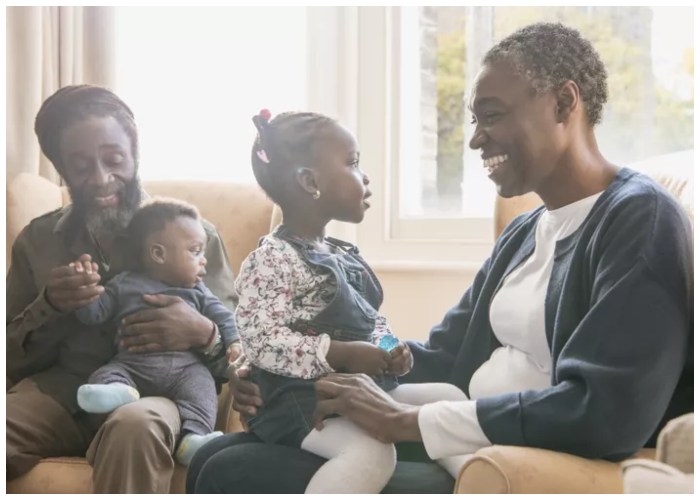The dynamics of grandparent-grandchild relationships are as diverse and complex as families themselves. Yet, intriguingly, research consistently shows a trend where maternal grandparents, more often than not, enjoy a closer bond with their grandchildren compared to paternal grandparents. While there are always exceptions to the rule, understanding the reasons behind this pattern can offer fascinating insights into family relationships and the factors that influence the closeness between generations.
Maternal vs. Paternal Grandparents: Unraveling the Differences
A common assumption attributes the difference in closeness to the traditional role of mothers as the primary caregivers and the managers of their children’s social worlds. Despite strides toward gender equality, mothers, especially in heterosexual relationships, still predominantly oversee their children’s schedules, emotional well-being, and connections with extended family. This often results in more frequent interactions between children and their maternal grandparents, reinforcing the bond through shared experiences and time spent together.
Factors Influencing Grandparent-Grandchild Closeness
Several variables come into play when determining the strength of a grandparent-grandchild relationship. Geographic proximity, for one, can significantly impact the frequency of visits, although many grandparents are willing to travel distances to see their grandchildren. A grandparent’s health, employment status, financial situation, and personality traits also play crucial roles. Additionally, the number of grandchildren can affect the quality of each relationship, as a grandparent with numerous grandchildren may struggle to forge deep, individual connections with each one.

The Importance of Early Bonding
The preference for maternal grandparents often begins from the earliest days of a grandchild’s life. Maternal grandmothers are more commonly present during significant milestones, such as the birth, and are more likely to assist in the period following the arrival of a new baby. This early involvement not only supports the new mother but also lays the foundation for a lasting bond with the grandchild. Furthermore, the support of grandparents has been linked to better maternal mental health, providing a crucial buffer against postpartum depression and enhancing the family’s overall well-being.
Teenagers and Their Grandparents
The special status of maternal grandparents doesn’t wane as grandchildren grow older. Studies involving teenagers highlight the enduring significance of the maternal grandmother, who is often viewed as a key advisor and confidante. The involvement of maternal grandparents in aspects of their grandchildren’s lives, such as education and future planning, further cements this bond, offering a blend of guidance and support that is both valued and cherished by young people.
The Impact of Family Structure Changes
Changes in family structure, such as divorce, can accentuate the differences in grandparent-grandchild relationships. Custody arrangements often result in maternal grandparents playing a more prominent role in their grandchildren’s lives, providing stability and support during times of transition. While paternal grandparents can also become key figures, especially when the father has custody, this scenario is less common, affecting the frequency and quality of their interactions with grandchildren.

Multigenerational Living and Cultural Influences
The dynamics shift slightly in multigenerational living situations, where cultural and societal norms can influence whether a family is more likely to reside with maternal or paternal grandparents. Factors such as economic considerations, housing availability, and cultural traditions regarding family care and elder support play significant roles in these arrangements, highlighting the complexity of family relationships.
The Bottom Line: Effort Equals Closeness
Ultimately, the depth of the grandparent-grandchild relationship hinges on the effort and involvement of the grandparents themselves. Those who actively seek to be a part of their grandchildren’s lives, while respecting the parents’ roles, are most likely to forge strong, enduring connections. This holds true regardless of whether they are maternal or paternal grandparents, underscoring the universal truth that love, effort, and respect are the cornerstones of any close family relationship.